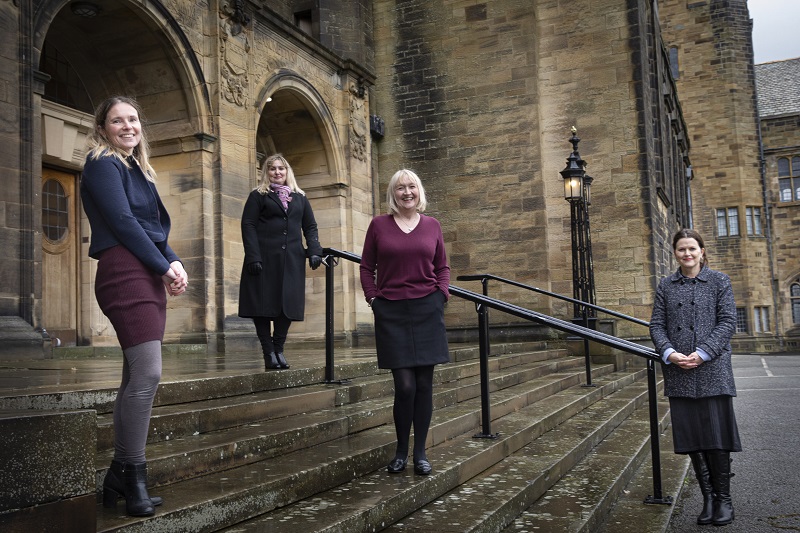
Vulnerable people across North and Mid Wales are to get free face-to-face legal advice thanks to a £260,000 partnership between local Citizens Advice services, law firms and a leading university.
It will help the region deal with what is being described as “a tsunami of cases” over the next 21 months as the pandemic makes for a perfect storm of domestic and workplace problems.
The North and Mid Wales Law Clinic is led by Ynys Mon Citizens Advice in partnership with Citizens Advice Denbighshire and Bangor University.
It will see law students from Bangor University overseen by experts from legal firms across the area helping clients deal with some of the most taxing issues in society.
The project, led nationally by the Access to Justice Foundation and supported by the Ministry of Justice through the Legal Support for Litigants in Person grant, uses the reach of the internet to provide legal guidance to people across more than half of Wales.
The focus is on Family, Community Care and Employment and covers everything from domestic violence through workplace issues to caring for elderly relatives.
Jackie Blackwell, Chief Executive of Citizens Advice Ynys Mon, said: “The Access to Justice Foundation approached us because we have a track record of working in partnership and Citizens Advice have offices in each of the seven counties and over 300 staff and volunteers to help signpost clients in the right direction.
“We also have the expertise to deliver this advice through our partners at Bangor University’s School of Law and at over 30 law firms from across North/ Mid Wales.
“And because of the pandemic we have put systems in place so that we can deliver this as a virtual law clinic, putting people in face to face contact with legal experts regardless of where they live.
“Due to internet technology we are now more accessible across the region than ever before with face to face services available for those unable to engage digitally.”
The £260,000 share of the Access To Justice Foundation grant will pay for three full-time specialist caseworkers and an administrative post with the legal expertise coming from supervisors from the participating law firms and the law students from Bangor University.
It aims to give clients virtual face to face or telephone interviews to explain their problems to people with legal expertise with a network of support that can signpost them to the appropriate help or assist them in going to court.
According to Citizens Advice, an important element of the project is for the Ministry of Justice to find out what the demand is in North and Mid Wales for greater access to legal advice.
Dr Sarah Nason, Director of Clinical Legal Education at Bangor Law School, also sees the project as a win-win with huge benefits for clients trying to cope with problems made worse by the pandemic and for students learning how the law works at the sharp end.
She said: “It feels very much like the right time for this collaboration. This allows me to lead on the contribution that the Law School can make to improving access to justice for those that need it most across North and Mid Wales.
“It brings together partners with extensive on the ground experience of advice provision and provides a bespoke and really well supported clinical legal education pathway for our students while the virtual element means they all have the opportunity to take part.
“This will also greatly contribute to developing their legal and people skills, and give them invaluable real experience that will greatly enhance their employability prospects in future.”
Professor Alison Mawhinney, Head of Bangor Law School, said ‘We are delighted to be part of this essential project that will help people in North and Mid Wales access the legal support they need at critical and stressful times in their lives.
“It will also provide our students with fantastic real-life experience and insights into how they, and a knowledge of law, can make a tangible difference to people’s lives.”
Joseph Brittan, a second year Law student at Bangor University, is one of those taking part and he said: “The instructors are clear and easy to talk to in pointing you in the right direction with clear guidance on how to access all the relevant information.
“The skills I’ve learnt so far into the process makes me excited to qualify as an Initial Assessor, with the hope to progress onto a General Advisor.”